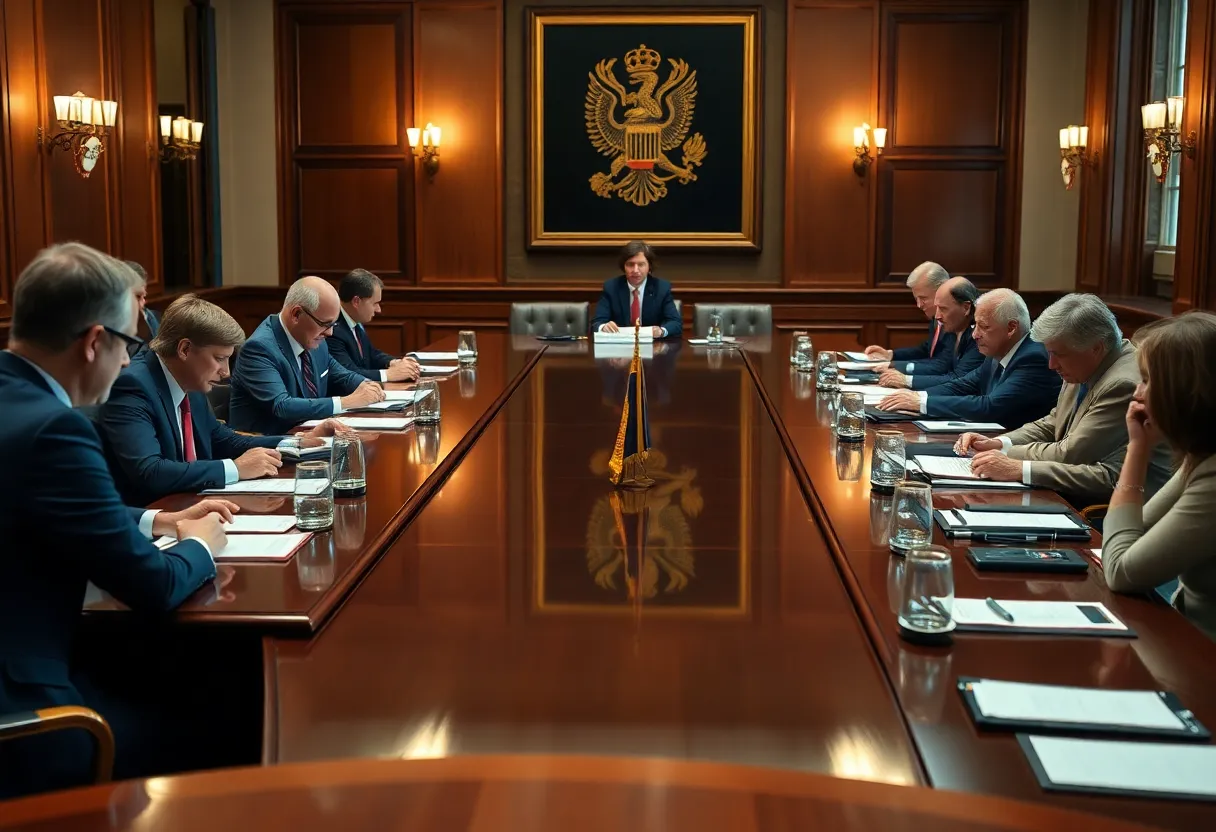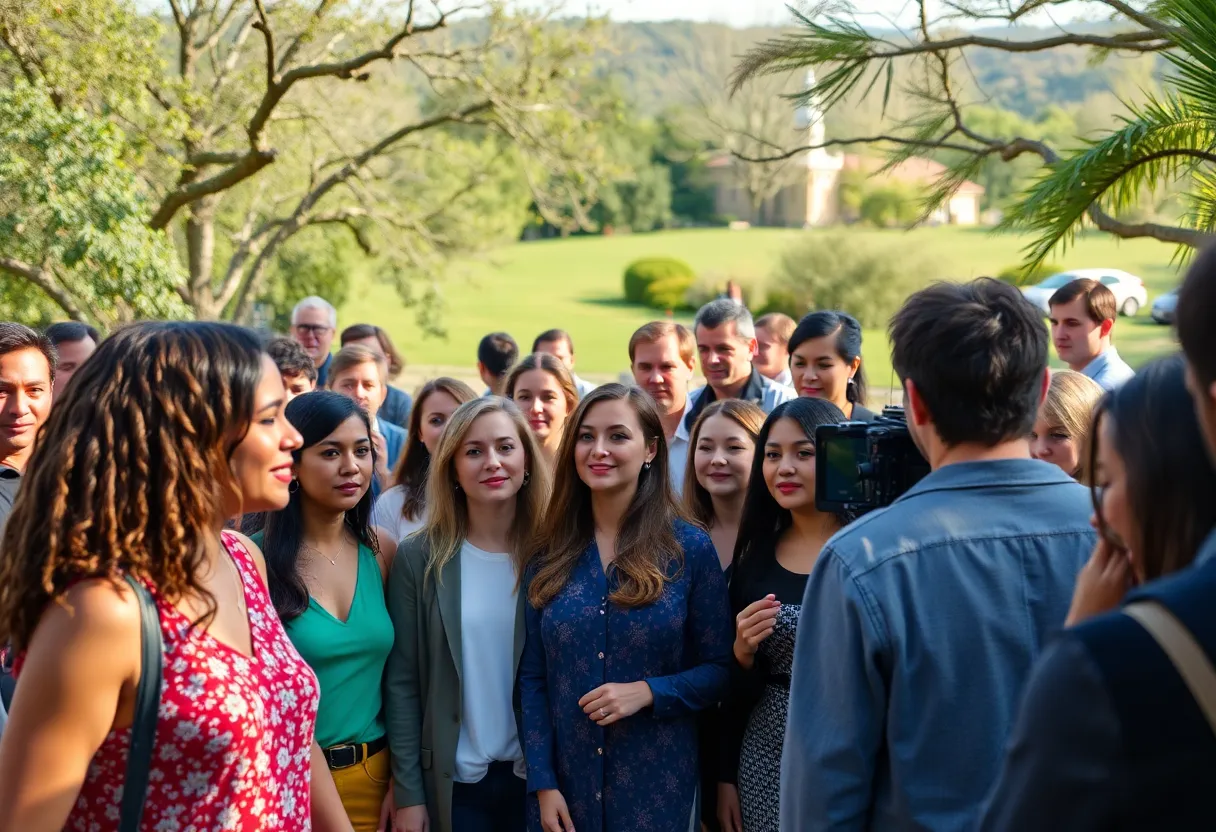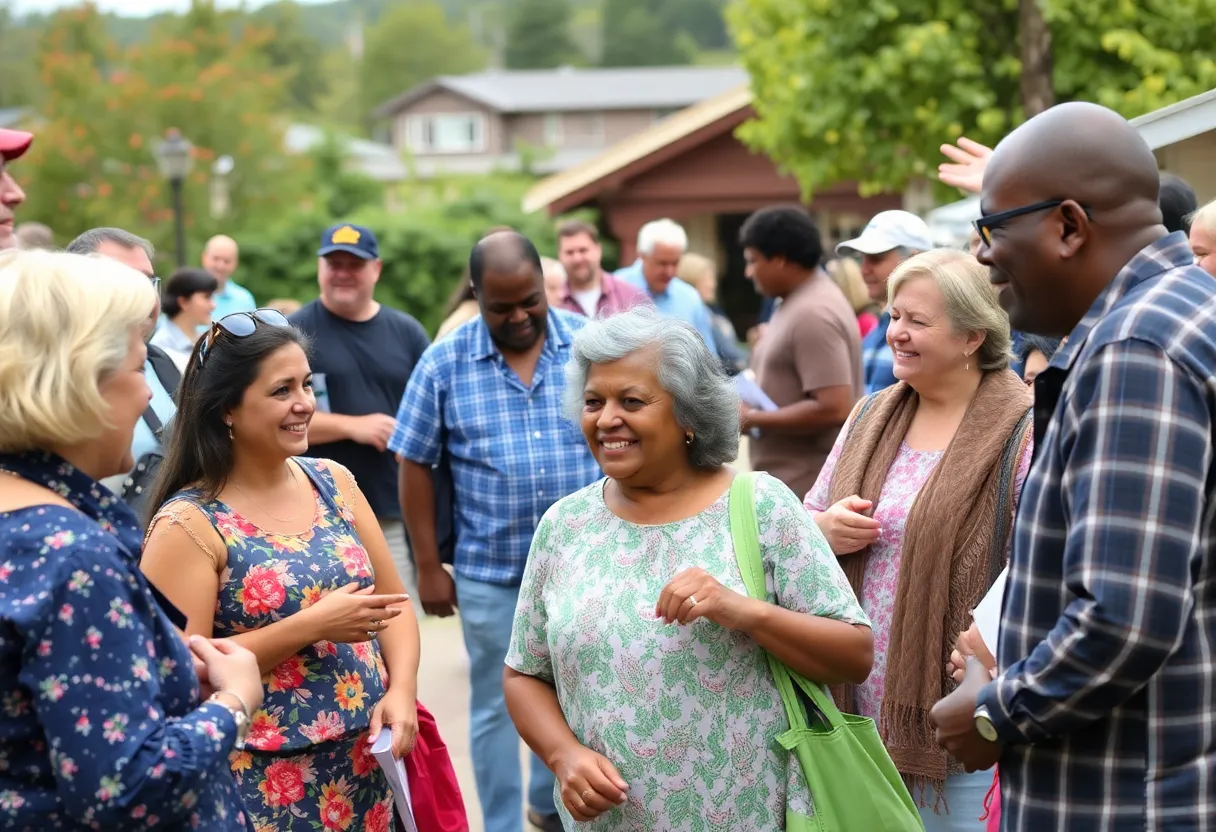News Summary
In a notable meeting, Donald Trump’s special envoy Steve Witkoff met Russian President Vladimir Putin at the Kremlin, marking their fourth encounter in two months. The talks occur amid escalating tensions following the assassination of a senior Russian general and ongoing negotiations on key issues such as territorial concessions and an unconditional ceasefire. Despite challenges, Trump remains optimistic about progress in U.S.-Russia relations, while Ukrainian President Zelensky stands firm in defense of his country’s sovereignty.
The Latest on Trump’s Envoy Steve Witkoff and his Meeting with Putin
In a significant development in the ongoing saga of U.S.-Russia relations, Donald Trump’s special envoy, billionaire real estate mogul Steve Witkoff, recently sat down with Russian President Vladimir Putin at the Kremlin. This meeting was marked by the peculiar arrangement of a large table that placed Witkoff and a translator on one end while Putin was flanked by a number of Russian officials on the other. This visual setup may have given off a sense of asymmetry, mirroring the complex dynamics at play in the discussions.
A Fourth Meeting in Two Months
This encounter was the fourth time in just over two months that Witkoff and Putin have come together for talks. Those familiar with the situation know how vital open channels of communication are, especially given the backdrop of a fraught military conflict. The mood in the room was described as “constructive and very useful,” according to Yuri Ushakov, a key foreign policy aide in Russia. Normally, such phrases aren’t used lightly when discussing international peace talks.
Timing Amid Tensions
Coincidentally or perhaps not, this meeting fell right on the heels of a **tragic** event—the assassination of senior Russian general Yaroslav Moskalik in a car bomb blast near Moscow. The Kremlin has pointed fingers at Kyiv for the attack, a move that further escalates the already tense situation and puts additional stress on the ongoing negotiations.
Sticking Points in the Negotiations
As the dust settles from recent events, the peace negotiations have hit some significant roadblocks. Key points of contention include territorial concessions, security guarantees, and the lifting of sanctions on Russia. The complexities of each issue cannot be overstated, and it seems that both sides have different perspectives on what constitutes a fair agreement.
Claims of Progress
Despite the rocky terrain, Trump has expressed optimism, suggesting that Russia and Ukraine are “very close to a deal.” However, President Volodymyr Zelensky of Ukraine remains firm, rejecting any thoughts of ceding territory to Russia. His stance underlines the importance of Ukrainian sovereignty—a principle that’s non-negotiable for him and his administration.
The Importance of Ceasefires
The topic of an unconditional ceasefire looms large in the discussions, but Moscow has thus far been unyielding in their refusal to entertain an immediate halt to hostilities. This refusal serves as a significant hurdle that threatens to derail any chance of progress.
Increased Pressure from Trump
Amid the chaos and conflicting reports, Trump has been steadily increasing pressure on Ukraine to make concessions for the sake of peace. This comes as his administration approaches its 100-day mark, where proof of any progress in the peace process would be a welcome milestone.
Contrasting Perspectives
Interestingly, while Trump’s administration seems to be hinting at supporting Russian control over the annexed Crimean Peninsula—an issue that hits the sore spot for Ukraine and its allies—Zelensky insists on continued opposition against Russian advances. It’s a balancing act filled with risks for both parties, and the fate of negotiations hangs in the balance.
The Bigger Picture
Witkoff’s meetings with Putin are not just about immediate concerns; they reflect a larger strategy aimed at repairing U.S.-Russian relations despite the ongoing war in Ukraine. Russian officials have indicated that the peace talks could be a pathway to rebuilding contacts, often placing blame for existing tensions on the previous U.S. administration.
The dialogue thus far has opened the door for potential direct conversations between Russian and Ukrainian representatives, a prospect many hope could pave the way for a resolution to the conflict.
As events continue to unfold, only time will tell if these discussions lead to meaningful change or if the chasm between expectation and reality widens further.
Deeper Dive: News & Info About This Topic
- BBC News
- Wikipedia: Russia–Ukraine relations
- The Guardian
- Google Search: Russian general killed
- CNN
- Encyclopedia Britannica: Russia-Ukraine Conflict
- Fox News
- Google News: Trump Putin meeting
- CBS News
- Google Scholar: Russia-Ukraine conflict







